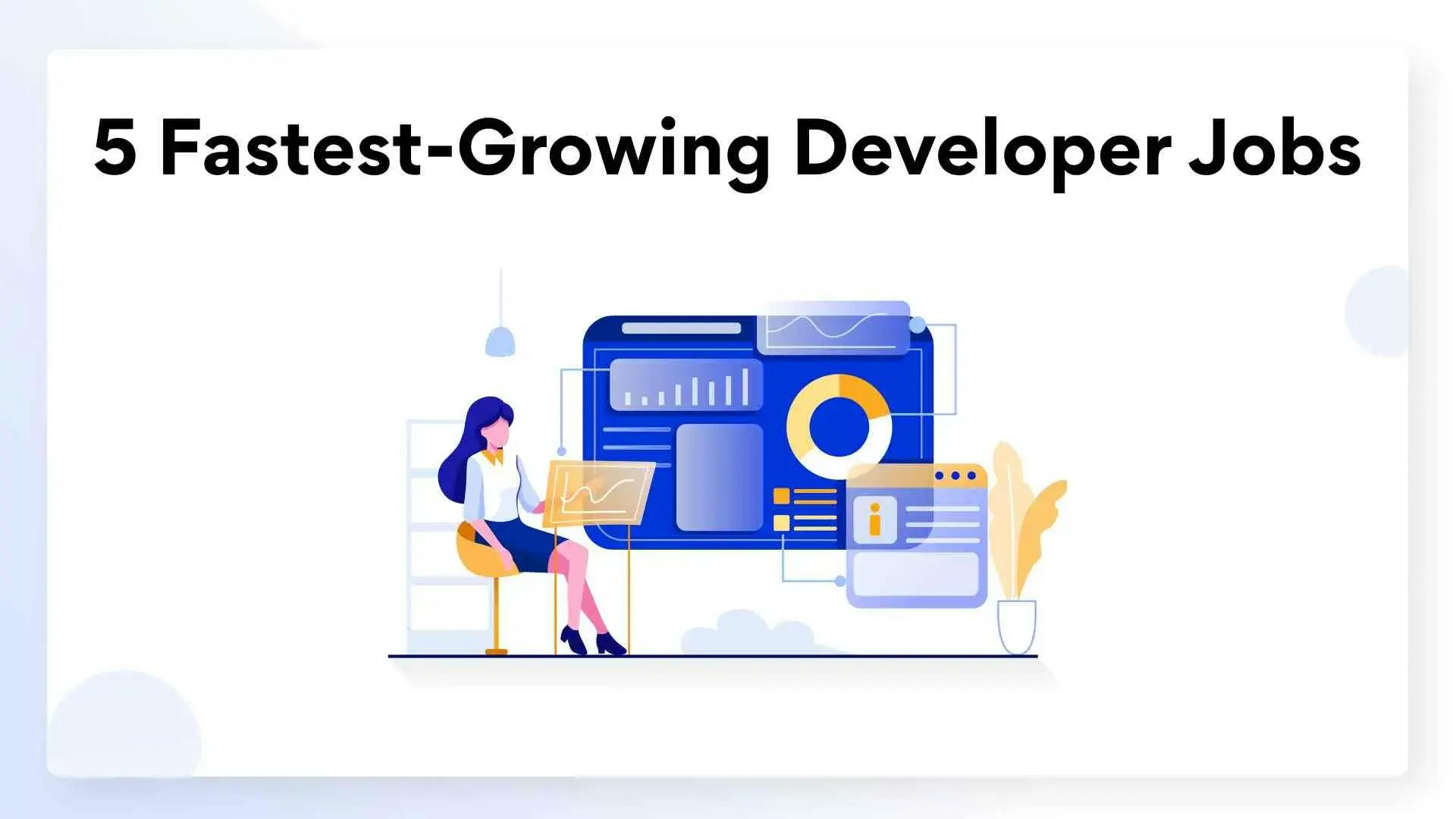Remote Embedded software engineer jobs
We, at Turing, are looking for Embedded software engineers to take charge of designing, developing, and maintaining embedded systems in products. Get an opportunity to work with the leading Silicon Valley companies and rise quickly through the ranks.
Find remote software jobs with hundreds of Turing clients
Job description
Job responsibilities
- Design and implement software systems for embedded systems and devices
- Write embedded software code as per the desired specifications
- Test, debug, and improve software systems for scalability, stability, and efficiency
- Integrate, validate, and implement new product designs
- Optimize I/O and software systems’ performance
- Collaborate with other developers and teams for hardware design and development
- Document software application values and provide continuous support to other teams
Minimum requirements
- Bachelor’s/Master’s degree in Engineering, Computer Science (or equivalent experience)
- At least 3+ years of engineering experience working with embedded systems (rare exceptions for highly skilled developers)
- Extensive knowledge in programming languages such as C or C++
- Hands-on experience in developing and troubleshooting embedded systems
- Knowledge of configuration management and defect tracking tools
- Strong understanding of IP protocols, OS coding techniques, interfaces and hardware subsystems
- Working knowledge of reading schematics and data sheets
- Fluent in English to communicate effectively
- Ability to work full-time (40 hours/week) with a 4 hour overlap with US time zones
Preferred skills
- Understanding of embedded systems with multitasking, real-time, and preemptive OS
- Experience with Linux operating systems
- Understanding of embedded system design patterns
- Good knowledge of Internet of Things (IoT) and data structures
- Familiarity with microcontrollers and microprocessors
- Strong analytical and problem-solving aptitude
- Familiarity with software configuration tools and software optimization skills
Interested in this job?
Apply to Turing today.
Why join Turing?
1Elite US Jobs
2Career Growth
3Developer success support
How to become a Turing developer?
Create your profile
Fill in your basic details - Name, location, skills, salary, & experience.
Take our tests and interviews
Solve questions and appear for technical interview.
Receive job offers
Get matched with the best US and Silicon Valley companies.
Start working on your dream job
Once you join Turing, you’ll never have to apply for another job.

How to become an embedded software engineer ?
Embedded software is an application that controls a specific function of a larger machine. One example of embedded software is the BIOS on a computer, which performs basic memory-and-storage services for the computer’s operating system. Because most embedded applications are self-contained, embedded software engineers may also be responsible for designing the entire hardware component with which their code will run.
An embedded software engineer is someone who creates software for embedded systems. These engineers have a general understanding of the embedded system's capabilities and limitations. The engineer will ensure that the software is compatible with the system.
What is the scope of embedded software engineering?
In the coming years, the global embedded systems market will expand at an exponential rate. The growth of embedded electronics has resulted in new design software and strategies tailored to those systems.
Because an embedded software engineer's role is so specialized and complex, this type of software engineer is in high demand. When compared to other occupations, embedded software engineers have experienced faster growth. An embedded software engineer is difficult to find because demand may outnumber supply. It is a competitive market, and embedded software engineers will find ample opportunities in the tech world.
What are the roles and responsibilities of an embedded software engineer?
As an embedded software engineer, you’ll be responsible for developing the code that runs devices ranging from toasters to airplane engines. The demands of embedded software engineering are a cross between those of a software programmer and an electrical engineer.
Like software engineers, embedded engineers need to understand complex programming languages such as C and C++, but they also must have in-depth knowledge of electronics and engineering principles to ensure that their code can communicate with the hardware and function properly with it.
- Develop and implement embedded device and system software from prerequisites to manufacturing and commercial deployment
- Create, build, code, test, and fix errors of the system software
- Examine the code and design
- Analyze and improve system resource productivity, reliability, and scalability
- Embed and evaluate new product designs
- Support software testing and optimizing I/O performance
- Provide post-production assistance
- Interaction with hardware designers and developers
- Examine both third-party and open-source software
How to become an embedded software engineer?
Now let's move on to the path that one must take to practice a profession in the field of embedded software development. For starters, keep in mind that there is no formal education required to become an embedded software engineer. You can master embedded software development to make a career out of, graduate or not, experienced or inexperienced. All you need is hands-on experience and proficiency in relevant technical and soft skills.
However, you may have heard that to land a remote embedded software engineer job, you need to have a bachelor's or master's degree in computer science or a similar discipline. This is true for several reasons: Firstly, having the right university degree helps you to better understand computer programming and web development, which will greatly help you learn embedded software development. Second, many companies require candidates to have specific qualifications when hiring embedded software engineers, which makes it easier to land rewarding job opportunities.
Now let's look at the skills and methods you'll need to master to become a successful embedded software engineer:
Interested in remote embedded software engineer jobs?
Become a Turing developer!
Skills required to become an embedded software engineer
Here are the fundamental skills you need to learn for high-paying embedded software engineer jobs.
1. C
C is a structured programming language that allows complex hardware or software problems to be broken into smaller, more manageable tasks. It also allows for the movement of data between the various software components. C is a general-purpose programming language and can efficiently work on many different types of programs, including applications for enterprise, computer games, graphics, applications requiring calculations, etc. C is also used in embedded systems development. This means that it is used to develop products such as computers, cell phones, and other electronic devices.
2. C++
C++ is a general-purpose coding language that can be used for game programming, software engineering, database development, developing browsers, operating systems, applications, and more. It supports procedural and object-oriented programming and was created as an extension to the C programming language. Millions of existing programs and lines of code use it as the basis.
3. Microcontrollers
A microcontroller, embedded inside a system, controls a specific function in a device. The processor of the microcontroller interprets data it receives from input/output (I/O) peripherals using its central processing unit. The temporary information that the processor is accessing is stored in the data memory of the microcontroller, where the processor retrieves it and uses instructions stored in its program memory to decipher and apply the incoming data. It then uses its input/output peripherals to communicate and enact the appropriate action.
4. Linux
The Linux operating system is a Unix-like and open-source OS for computers, servers, mainframes, mobile devices, and embedded devices. It can manage hardware resources, launch and handle applications, and provide some form of user interface. It is commonly used as an embedded OS for a variety of applications, including household appliances, automotive entertainment systems, and network file system appliances.
5. Real-Time Operating System
An RTOS is a piece of software designed to efficiently manage the time of a central processing unit (CPU). RTOSes are most common in embedded systems, where time is critical. Developers familiar with operating systems, such as Windows and Linux, will notice the characteristics of an embedded RTOS. They are designed to run on systems with limited memory and to operate indefinitely without needing to be reset. Because they are designed to respond to events quickly and perform under heavy loads, RTOSes tend to be slower at performing big tasks when compared to other types of operating system.
Interested in remote embedded software engineer jobs?
Become a Turing developer!
How to get remote embedded software engineer jobs?
Developers and embedded software engineers are a lot alike. In order to excel at their craft, they have to practice effectively and consistently. They also need to work hard enough that their skills grow gradually over time. In that regard, there are two major factors that developers must focus on in order for that progress to happen: the support of someone who is more experienced and effective in practice techniques while you're practicing. As a developer, it's vital for you to know how much to practice - so make sure there is someone on hand who will help you out and keep an eye out for any signs of burnout!
Turing offers the best remote embedded software engineer jobs that suit your career trajectories as an embedded software engineer. Grow rapidly by working on challenging technical and business problems on the latest technologies. Join a network of the world's best developers & get full-time, long-term remote embedded software engineer jobs with better compensation and career growth.
Why become an embedded software engineer at Turing?
Elite US jobs
Career growth
Exclusive developer community
Once you join Turing, you’ll never have to apply for another job.
Work from the comfort of your home
Great compensation
How much does Turing pay their embedded software engineers?
At Turing, every embedded software engineer is allowed to set their rate. However, Turing will recommend a salary at which we know we can find a fruitful and long-term opportunity for you. Our recommendations are based on our assessment of market conditions and the demand that we see from our customers.
Frequently Asked Questions
Latest posts from Turing
Leadership
Equal Opportunity Policy
Explore remote developer jobs
Based on your skills
- React/Node
- React.js
- Node.js
- AWS
- JavaScript
- Python
- Python/React
- Typescript
- Java
- PostgreSQL
- React Native
- PHP
- PHP/Laravel
- Golang
- Ruby on Rails
- Angular
- Android
- iOS
- AI/ML
- Angular/Node
- Laravel
- MySQL
- ASP .NET
Based on your role
- Full-stack
- Back-end
- Front-end
- DevOps
- Mobile
- Data Engineer
- Business Analyst
- Data Scientist
- ML Scientist
- ML Engineer
Based on your career trajectory
- Software Engineer
- Software Developer
- Senior Engineer
- Software Architect
- Senior Architect
- Tech Lead Manager
- VP of Software Engineering













